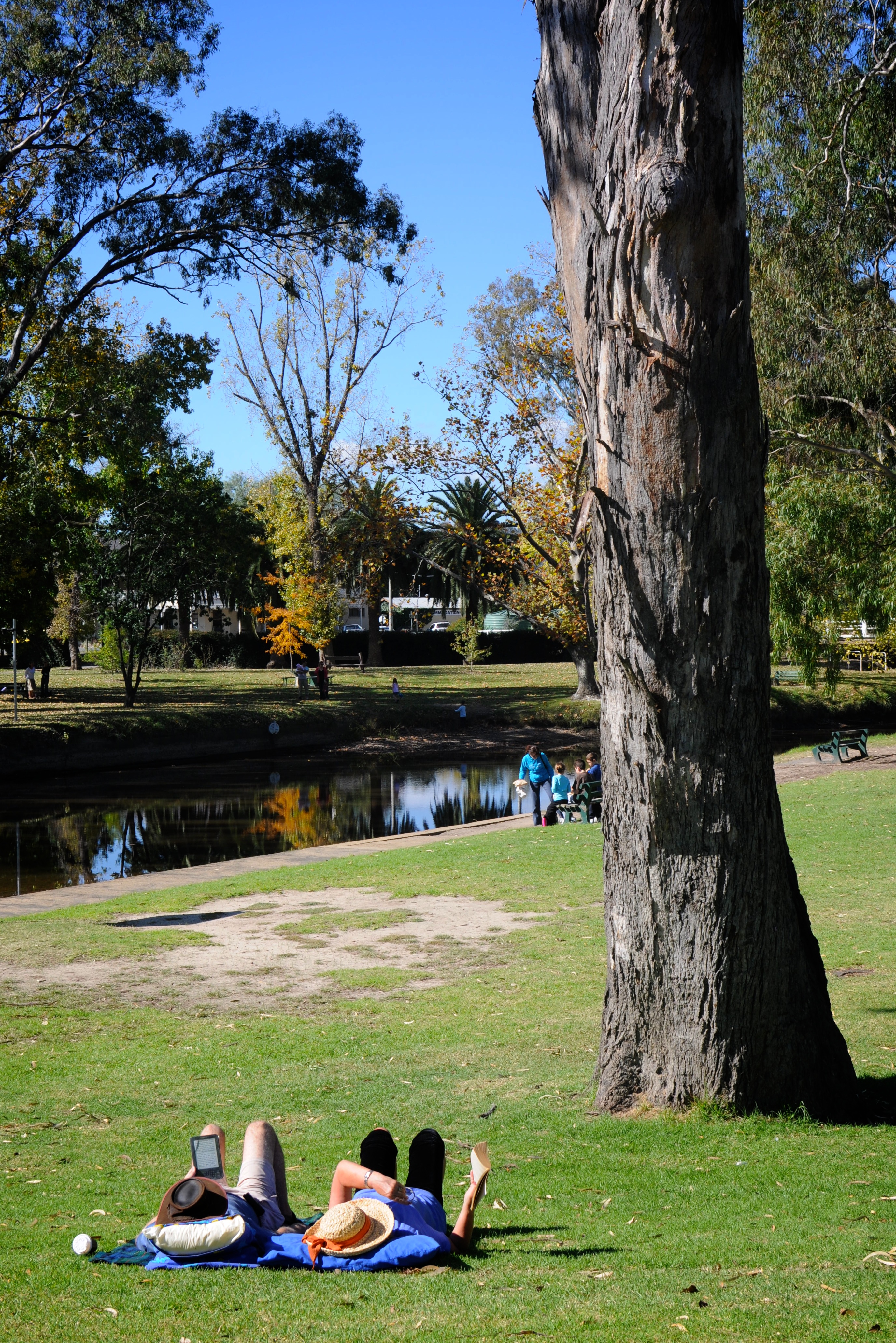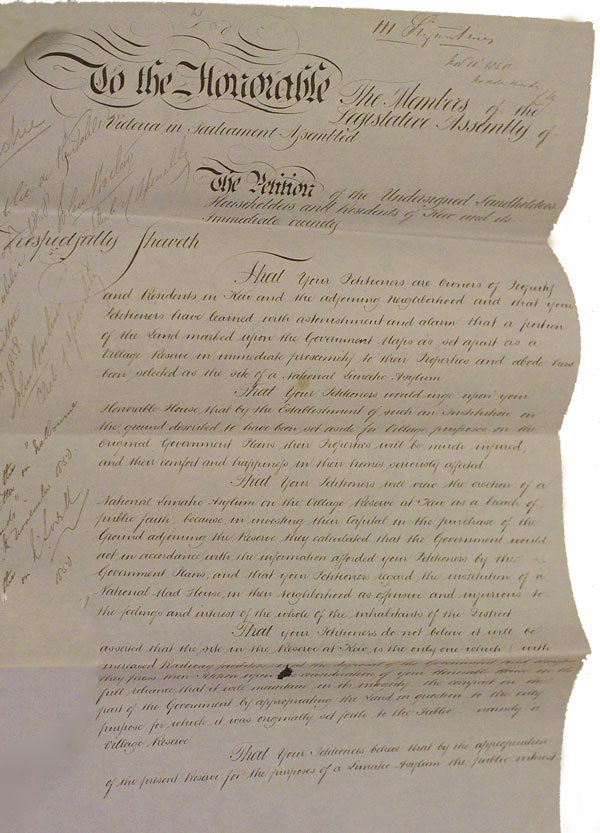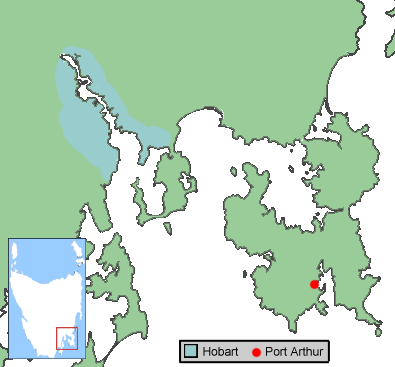|
Jerilderie Letter
The handwritten document known as the Jerilderie Letter was dictated by Australian bushranger Ned Kelly to fellow Kelly Gang member Joe Byrne in 1879. It is one of only two original Kelly letters known to have survived. The Jerilderie Letter is a 56-page document of approximately 8,000 words. In the letter Kelly tries to justify his actions, including the murder of three policemen in October 1878 at Stringybark Creek. He describes cases of alleged police corruption and calls for justice for poor families. It is a longer and more detailed version of the Cameron/Euroa Letter which Kelly sent to a member of the Victorian Legislative Assembly and the police in December 1878. The document is named after the town of Jerilderie, New South Wales, where the Kelly Gang carried out an armed robbery in February 1879 during which Kelly tried to have his document published as a pamphlet. It was first called the 'Jerilderie Letter' by author Max Brown in his 1948 biography of Kelly, ''Austra ... [...More Info...] [...Related Items...] OR: [Wikipedia] [Google] [Baidu] |
Euroa
Euroa is a town in the Shire of Strathbogie in the north-east of Victoria, Australia. At the 2016 census, Euroa's population was 3,275. The name Euroa comes from an Aboriginal word in the old local dialect meaning 'joyful'. History Major T.L. Mitchell camped on the banks of the Seven Creeks at Euroa during his 1836 "Australia Felix" expedition. The Post Office opened on 1 January 1854 in the old town, as the township was settled. Euroa's claim to fame is that the National Bank was robbed by Ned Kelly in 1878. Much of the region's wealth once came from sheep but now it comes from horse studs. The Euroa Magistrates' Court closed on 1 January 1990. Heritage sites Euroa contains a number of heritage-listed sites, including: * 1 Binney Street: National Bank of Australasia Building * 90 Binney Street: Euroa Post Office * 99 Binney Street: Euroa Court House Facilities Euroa is roughly midway between Melbourne and Albury. The area is geographically very flat, as the town is ... [...More Info...] [...Related Items...] OR: [Wikipedia] [Google] [Baidu] |
True History Of The Kelly Gang
''True History of the Kelly Gang'' is a novel by Australian writer Peter Carey, based loosely on the history of the Kelly Gang. It was first published in Brisbane by the University of Queensland Press in 2000. It won the 2001 Booker Prize and the Commonwealth Writers Prize in the same year. Despite its title, the book is fiction and a variation on the Ned Kelly story. Plot summary Ned Kelly begins his autobiography with a description of his father, John "Red" Kelly, an Irishman transported to Van Diemen's Land and eventually settling in the colony of Victoria, Australia. After marrying Ned's mother Ellen (née Quinn), the Kellys settle in Avenel, a rural area northeast of Melbourne. Red Kelly is shown to have numerous brushes with the colonial police forces, resulting in his imprisonment and death when his son Ned was twelve years of age. After the rest of the family resettles in northeast Victoria under the Land Grant Act, Ned's mother attempts to provide for her children ... [...More Info...] [...Related Items...] OR: [Wikipedia] [Google] [Baidu] |
Peter Carey (novelist)
Peter Philip Carey AO (born 7 May 1943) is an Australian novelist. Carey has won the Miles Franklin Award three times and is frequently named as Australia's next contender for the Nobel Prize in Literature. Carey is one of only five writers to have won the Booker Prize twice—the others being J. G. Farrell, J. M. Coetzee, Hilary Mantel and Margaret Atwood. Carey won his first Booker Prize in 1988 for ''Oscar and Lucinda'', and won for the second time in 2001 with ''True History of the Kelly Gang''. In May 2008 he was nominated for the Best of the Booker Prize. In addition to writing fiction, he collaborated on the screenplay of the film ''Until the End of the World'' with Wim Wenders and is executive director of the Master of Fine Arts in Creative Writing program at Hunter College, part of the City University of New York. Early life and career: 1943–1970 Peter Carey was born in Bacchus Marsh, Victoria, in 1943. His parents ran a General Motors dealership, Carey Motors. He ... [...More Info...] [...Related Items...] OR: [Wikipedia] [Google] [Baidu] |
Plagiarisation
Plagiarism is the fraudulent representation of another person's language, thoughts, ideas, or expressions as one's own original work.From the 1995 '' Random House Compact Unabridged Dictionary'': use or close imitation of the language and thoughts of another author and the representation of them as one's own original work qtd. in From the Oxford English Dictionary: The action or practice of taking someone else's work, idea, etc., and passing it off as one's own; literary theft. While precise definitions vary, depending on the institution, such representations are generally considered to violate academic integrity and journalistic ethics as well as social norms of learning, teaching, research, fairness, respect and responsibility in many cultures. It is subject to sanctions such as penalties, suspension, expulsion from school or work, substantial fines and even imprisonment. Plagiarism is typically not in itself a crime, but like counterfeiting, fraud can be punished in a court for ... [...More Info...] [...Related Items...] OR: [Wikipedia] [Google] [Baidu] |
Public Record Office Victoria
Public Record Office Victoria (PROV) is the government archives of the Australian State of Victoria. PROV was created by the Victorian Public Records Act 1973 with responsibility for the better preservation management and utilization of the public records of the State. It is an agency of the Department of Premier and Cabinet. History Prior to 1903 there was no formal attempt to deposit Victorian government records with an archival authority. In that year ten volumes of Convict Indents were transferred to the Public Library (later the State Library of Victoria) by the Secretary of the Law Department. In ensuing years, reinforced by a 1927 instruction to departments from the Premier that no documents be destroyed without reference to the trustees of the Public Library, a substantial archival collection of Victorian public records was created. The first archivist was appointed to the staff of the Public Library in 1948. In 1955 a Senior Archivist was appointed and a separate Archives ... [...More Info...] [...Related Items...] OR: [Wikipedia] [Google] [Baidu] |
National Museum Of Australia
The National Museum of Australia, in the national capital Canberra, preserves and interprets Australia's social history, exploring the key issues, people and events that have shaped the nation. It was formally established by the ''National Museum of Australia Act 1980''. The museum did not have a permanent home until 11 March 2001, when a purpose-built museum building was officially opened. The museum profiles 50,000 years of Indigenous heritage, settlement since 1788 and key events including Federation and the Sydney 2000 Olympics. The museum holds the world's largest collection of Aboriginal bark paintings and stone tools, the heart of champion racehorse Phar Lap and the Holden prototype No. 1 car. The museum also develops and travels exhibitions on subjects ranging from bushrangers to surf lifesaving. The National Museum of Australia Press publishes a wide range of books, catalogues and journals. The museum's Research Centre takes a cross-disciplinary approach to history, ... [...More Info...] [...Related Items...] OR: [Wikipedia] [Google] [Baidu] |
Port Arthur, Tasmania
Port Arthur is a town and former convict settlement on the Tasman Peninsula, in Tasmania, Australia. It is located approximately southeast of the state capital, Hobart. The site forms part of the Australian Convict Sites, a World Heritage property consisting of 11 remnant penal sites originally built within the British Empire during the 18th and 19th centuries on fertile Australian coastal strips. Collectively, these sites, including Port Arthur, are described by UNESCO as "... the best surviving examples of large-scale convict transportation and the colonial expansion of European powers through the presence and labour of convicts." In 1996, the town was the scene of the Port Arthur Massacre, the worst instance of mass murder in post-colonial Australian history. Location Port Arthur is located about southeast of the state capital, Hobart, on the Tasman Peninsula. The scenic drive from Hobart, via the Tasman Highway to Sorell and the Arthur Highway to Port Arthur, takes a ... [...More Info...] [...Related Items...] OR: [Wikipedia] [Google] [Baidu] |
Frank The Poet
Francis MacNamara (ca. 1810 - 28 August 1861), known as Frank the Poet, was an Irish writer, a convict, transported to the Colony of New South Wales, Australia from Cashel, County Tipperary, Ireland, he composed improvised verse expressing the convict's point of view. Transportation MacNamara in 1832 was convicted of larceny, and sentenced to seven years transportation to Australia. He often absconded and received an extended sentence as well as floggings and other punishments, and was finally sent to the dreaded Port Arthur in Van Diemen's Land. He received a ticket of leave in 1847 and his freedom in 1849, after which there is little record of his life. His verse suggests he was an educated person with strong political convictions. Writings He versified from the start of his convict career: treating the court to an extempore epigram about being sent to Botany Bay, and composing a mock-heroic poem about his case during the voyage out. Except for one longer poem, his verse ... [...More Info...] [...Related Items...] OR: [Wikipedia] [Google] [Baidu] |
Moreton Bay (song)
"Moreton Bay" is an Australian folk ballad which tells of the hardship a convict experienced at penal settlements around Australia, in particular, the penal colony at Moreton Bay, Queensland, which was established to house convicts who had reoffended in settlements in New South Wales. The song references exceptionally brutal treatment of convicts while the colony was under the command of the infamous Patrick Logan. It also describes Logan's death at the hands of local Aborigines and the joy felt by the convicts upon hearing the news. The song may have been composed at the time of Logan's death on or soon after 18 October 1830. A version entitled "The Convict's Arrival" or "The Convict's Lament on the Death of Captain Logan" has been attributed to Francis MacNamara who was transported to Australia in 1832 and was never held at Moreton Bay. It is customarily sung to the tune of the early 19th century Irish ballad "Youghal Harbour" (also known as "Eochaill"), which was used later for ... [...More Info...] [...Related Items...] OR: [Wikipedia] [Google] [Baidu] |
Convicts In Australia
Between 1788 and 1868, about 162,000 Penal transportation, convicts were transported from Great Britain, Britain and Ireland to various list of Australian penal colonies, penal colonies in Australia. The British Government began transporting convicts overseas to Thirteen Colonies, American colonies in the early 18th century. When transportation ended with the start of the American Revolution, an alternative site was needed to relieve further overcrowding of British prisons and prison ship, hulks. Earlier in 1770, James Cook charted and claimed possession of the east coast of Australia for Britain. Seeking to pre-empt the French colonial empire from expanding into the region, Britain chose Australia as the site of a penal colony, and in 1787, the First Fleet of eleven convict ships set sail for Botany Bay, arriving on 20 January 1788 to found Sydney, New South Wales, the first European settlement on the continent. Other penal colonies were later established in Van Diemen's Land ( ... [...More Info...] [...Related Items...] OR: [Wikipedia] [Google] [Baidu] |
Squatting (pastoral)
Squatting is a historical Australian term that referred to someone who occupied a large tract of Crown land in order to graze livestock. Initially often having no legal rights to the land, squatters became recognised by the colonial government as owning the land by being the first (and often the only) European settlers in the area. Eventually, the term "squattocracy", a play on "aristocracy", came into usage to refer to squatters and the social and political power they possessed. Evolution of meaning The term ' squatter' derives from its English usage as a term of contempt for a person who had taken up residence at a place without having legal claim. The use of 'squatter' in the early years of British settlement of Australia had a similar connotation, referring primarily to a person who had 'squatted' on Aboriginal land for pastoral or other purposes. In its early derogatory context the term was often applied to the illegitimate occupation of land by ticket-of-leave convicts or ... [...More Info...] [...Related Items...] OR: [Wikipedia] [Google] [Baidu] |




.jpg)


